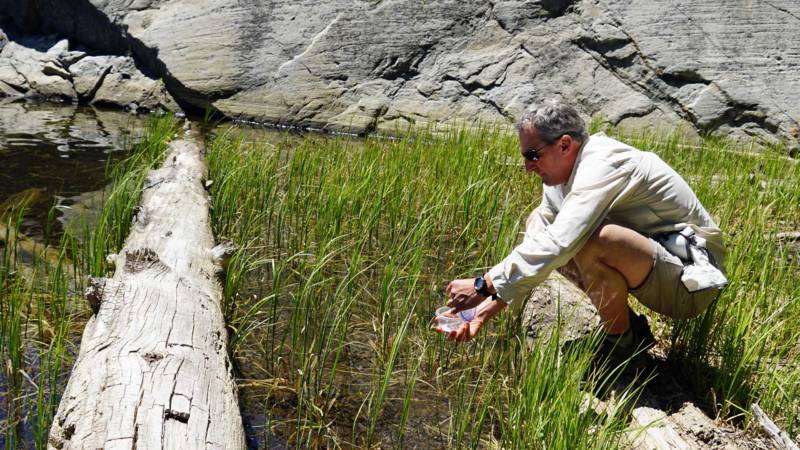Biologist Roland Knapp works in the Sierra Nevada, seeing every day the impact humans have on the environment. And he’s learned that one of the most important tools for fighting climate change is our own hearts.
Sometimes it’s hard for us as humans to wrap our mind around the fact that a single species, us, could have these dramatic affects, globally. Is that possible? Could humans really be causing the ice caps in Antarctica to disappear?
That’s hard to wrap your head around.
And I think some of that – why should what I do over here have any affect on what happens over there, and even if it does, so what, it doesn’t affect me – I think that happens because we don’t have a connection to these places.
Get out into the world. Get out into the world and look at that world. Find an ecosystem that really moves you in some way. For me, that’s the Sierra Nevada, for somebody else it might be blue oak woodlands, for somebody else it might be the ocean.
